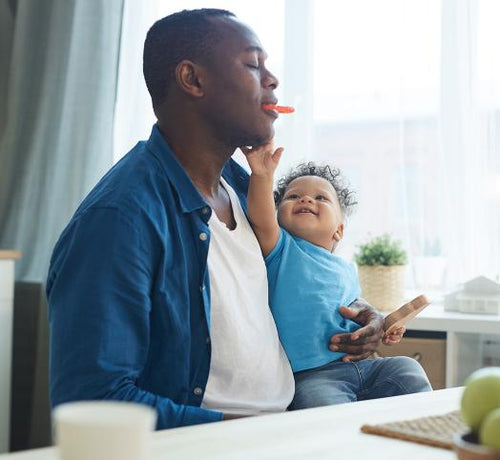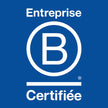Already half a year since the birth of your little one…
In 6 months, your fragile newborn has transformed into a happy, talkative baby who is curious about the world around him.
Take full advantage of this cheerful and touching period, during which everything is an excuse to laugh, communicate, discover and experiment!
ITS WEIGHT AND SIZE
At 6 months, babies generally weigh between 6 and 9 kg. Their growth slows a little compared to the first months, and most measure between 62 and 72 cm. Even if your baby is not in these figures, everything is fine as long as his growth curve remains regular, without dropping out.
HIS AWAKENING
Your baby is fascinated by his reflection in the mirror, although he does not yet understand that it is himself he is looking at.
He spends a lot of time handling his toys, and he particularly likes those that have bright colors, soft textures or that combine music and light effects. But his favorite game remains hide and seek: by hiding an object (or your face) under a cloth and then making it reappear, you will inevitably arouse his enthusiasm!
More generally, your baby loves interacting with you. He tries to attract your attention, multiplies the bursts of laughter, the facial expressions and the little cries of joy. He coos and coos to himself, and takes great pleasure in repeating syllables ending in "a": "dadadada", "papapapa", "mamamama"... These sounds have no precise meaning in his mind: it is you who will gradually give them meaning by responding to them. What a joy for him to see you arrive saying “Mommy is here” when he says “mamamama”! He thus discovers the symbolic dimension of language: a sound corresponds to an object.
HIS MOTOR SKILLS
Very active, your baby controls his movements better and better. He is now able to hold his toys tightly, and he will drop one if you hand him another. He also manages to grab objects around him and if you take away a toy he likes, he protests by screaming. When you approach him, he reaches out his arms for you to pick him up. Lying on his back, he plays with his feet and brings them to his mouth. Placed on his stomach, he manages to roll over to get back on his back. When you support him in a standing position, his legs exert flexion – extension movements like springs: this is the “jumper” stage.
SITTING SOON!
Sitting up is your baby's big challenge for the next few months! Right now, if you place him on his back, he lifts his head and chest to try to sit up on his own, but he can't yet. On the other hand, if you help him reach this position, he can sit without support for a few moments, and he loves it! This unique posture gives him a new perspective on the world and multiplies his possibilities: he can see everything that happens and catch objects scattered around him. To make it easier for him to enjoy it, you can prop his back in a nursing pillow or bolster. But no more than a few minutes! His still fragile spine should not be strained for long beyond its capabilities. Within a month or two, he will be able to sit upright on his own with his back straight.
THE AGE OF THE FIRST TEETH
If you observe your baby biting heavily on his toys, sucking his fingers incessantly and drooling profusely, the first cunt is probably coming soon! 6 months is often the age of its appearance, and the first tooth to erupt is usually a lower central incisor. However, don't worry if you don't see anything coming: the age of the first tooth varies greatly depending on the child. It can appear as early as 4 months in some people, or even at birth in exceptional cases. Conversely, it happens that a 12-month-old baby does not yet have teeth, without this being a sign of poor development if no other anomaly is associated with it.
HIS SLEEP
After the rough nights at the beginning, most babies sleep peacefully between approximately 3 and 9 months. If yours still wakes up at night, don't lose patience! He just needs a little more time to build up his sleep… Teething can also wake him up at night. Don't be afraid that he will develop bad habits: go see him when he wakes up and help him go back to sleep with a cuddle, a breastfeed or a small bottle. You will thus provide him with the serenity necessary for good long-term sleep. And in a few months, these nighttime awakenings will only be a distant memory!
6 MONTHS, SYMPTOMS RELATED TO HIS FIRST TEETH
The first teething remains a stage that is often long and difficult for babies to overcome. The appearance of baby's first teeth is obviously an important change in baby's development and life. Especially since at 6 months, your baby begins to diversify his diet and try foods. The emergence of the first baby teeth is generally accompanied by oral discomfort, pain and swelling. To relieve baby, Expanscience offers you the Hyalugel 1st teeth medical device, an oral gel specially designed for teething.




